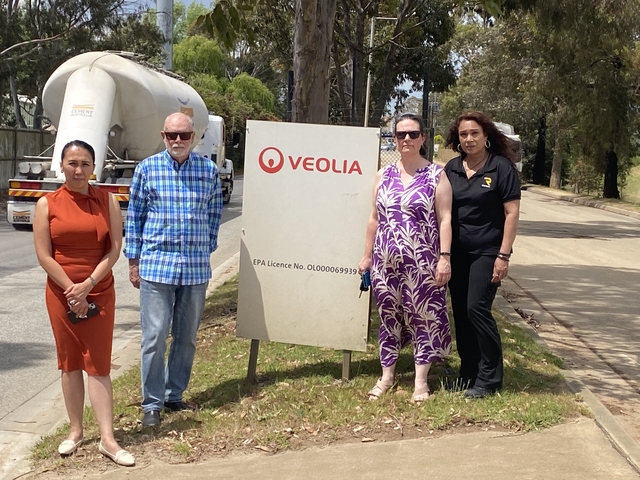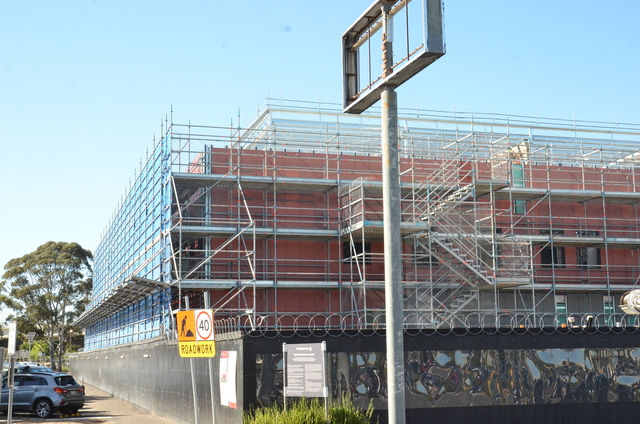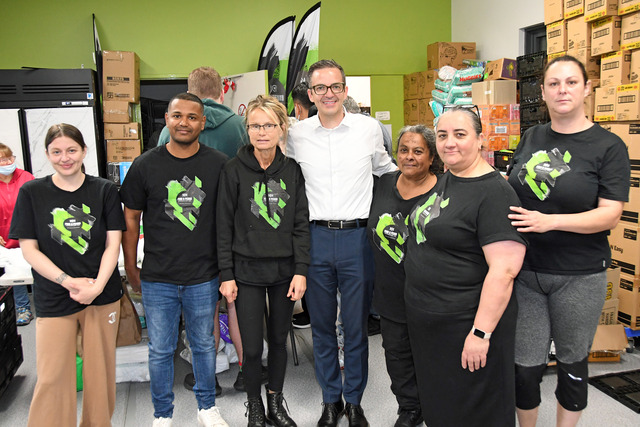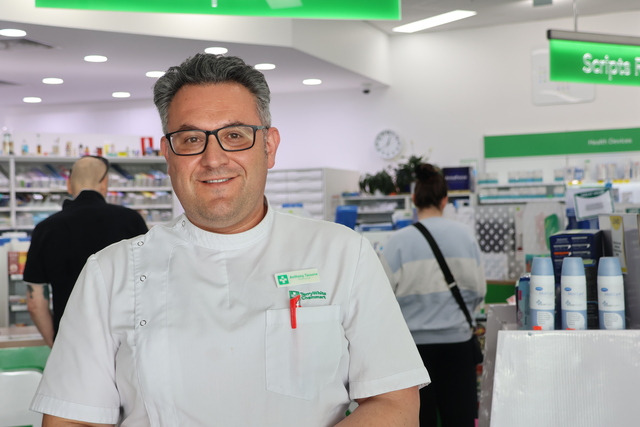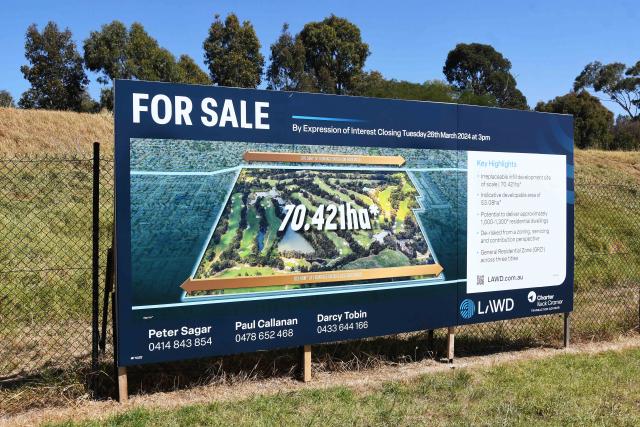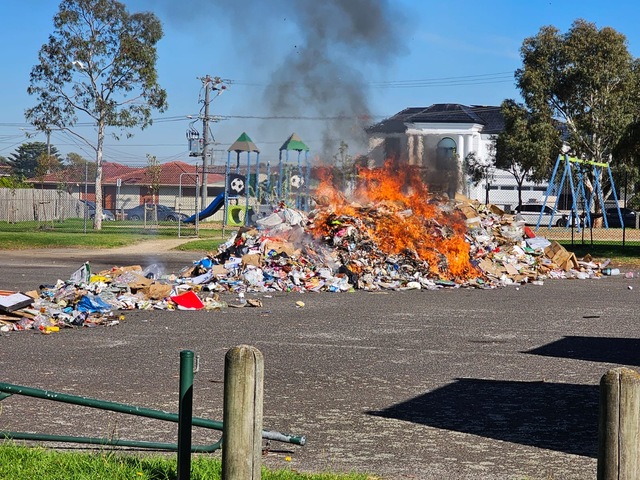Communities say they are left devastated, disappointed and angered after Casey Council approved the proposed waste transfer station next to the Hallam Road landfill just before a newly elected council.
Casey Council approved the planning permit on Monday 4 November, after receiving it in December 2023.
Hallam Road landfill operator Veolia proposed to build a $27m commercial waste transfer station on the land adjacent to the landfill.
The proposed facility will be located approximately 250 metres from the nearest residential dwelling, and it is set to accept about 550,000 tonnes of municipal residual waste, construction and demolition waste, and commercial and industrial waste from Melbourne’s south-east.
Star News reported in January this year that the surrounding community rejected the proposed facility with concerns about fire risks, midnight noise, and increased traffic, dust, and odour.
Holt MP Cassandra Fernando brought the issue to the parliament on Thursday 7 November and called on the Casey Council to “recommit to the original development plan for the Hampton Park Landfill site and to defer any further decision making until a democratically elected council can take office”.
She said the decision to approve the proposed facility notably just before a newly elected council had left the community feeling frustrated and ignored.
“Residents are understandably frustrated by the proposal to extend the life of this site for waste processing beyond the promised closure date of 2040, as outlined in the site’s initial draft development plan. When people moved into the surrounding suburbs, they were assured that the landfill would close in 2040 and be converted into a public park,” she said.
“Since my election as the Federal Member for Holt, I have heard from countless residents who are deeply concerned about the proposed Hampton Park Waste Transfer Station.
“Residents already contend with the impacts of the existing Hampton Park landfill. Between January 2022 and December 2023, more than 1,500 complaints were lodged regarding odours from the site. The landfill has also been accused of exceeding safe methane levels on at least 22 occasions.
“When major utilities are built in a community, they require a compromise, with the community accepting some sacrifice to local amenity for the broader benefit of the state. Such projects require community support and trust in the promises made.”
The newly elected River Gum Ward councillor Lynette Pereira said she was disappointed that there was no community consultation for such a major development in the area.
She said the newly elected councillors were robbed of the opportunity to make a decision themselves to represent the community.
“That’s a really bad thing to do [to approve the waste transfer station before the newly elected council]. And council did that on purpose,” she said.
According to the council, the application was assessed against the Hampton Park Hill Development Plan.
According to the State Government planning process, the application was exempt from public exhibition or public submissions.
City of Casey chief executive officer Glenn Patterson said Hampton Park Hill was recognised as a hub of state significance for waste management and resource recovery by the Victorian Government and would play a crucial role in supporting Victoria’s sustainability goals.
“The decision to maintain this site for waste and resource recovery aligns with broader strategic objectives to ensure efficient waste management while balancing community needs,” he said.
“We understand that the local community may be disappointed by this decision. Council’s role is to consider planning permit applications against relevant policies, development plans and legislation, and to ensure local amenity is protected for the community.
“Conditions have been included on the permit that will require the applicant to undertake several assessments prior to the operation of this site.
“The Environmental Protection Authority (EPA) will also consider an application by Veolia for a Development Licence. This is a separate process to the planning permit application and will involve public exhibition in coming weeks where the community can have their say.”
The planning permit for the waste transfer station is subject to 57 conditions.
A Landfill Gas Risk Assessment is required before operation that will identify safety measures needed for the transfer station to manage landfill gas risks.
An Air Quality and Noise Assessment is required before operation and will explain how the design of the transfer station will manage noise and air quality. This includes handling all open waste inside a closed building and creating an exhaust system to help reduce odours in the air.
An updated noise assessment is required before the operation of this permit, and Veolia must follow the recommendations from this report.
Before the development starts, a truck wheel wash must be installed and maintained to the satisfaction of the council.
The condition also requires that vehicles departing the site must not deposit mud and other materials on the roadways, to the satisfaction of the council.
According to the council, the application was referred to the EPA, a determining referral authority for this application.
Council must refuse any application for a planning permit if a determining referral authority objects to the planning application.
It is confirmed that the EPA did not object to the planning permit.
According to a spokesperson of EPA, the referral for a planning permit and an assessment for a development licence are separate approvals needed for the proposal to progress.
“The planning permit allows a certain use for a specific piece of land (location), whereas the EPA development licence assessment considers the proposed design and construction in detail including best available technologies, the applicant, community consultation and environment protection laws and regulations,” they said.
“EPA did not object to the granting of a planning permit, as there was no basis for an objection on planning-related grounds.”
A Veolia spokesperson said: “We are pleased to confirm that the City of Casey council Planning Permit required for our Hampton Park Transfer Station has been approved.
“This is an important and positive outcome for Victoria’s growing waste management needs and brings us a step closer to addressing the critical waste transfer challenges of the state.
“We are continuing to seek a development licence from EPA. As part of this, there will be a formal community consultation process, and opportunities for the public to seek further information, ask questions of our team and the EPA, and provide their feedback on the proposal to the EPA. The details surrounding this consultation are being finalised by the EPA and will be made publicly available in due course.
“Veolia is committed to ensuring the community is fully informed throughout the entire process.”
EPA is consulting the community in relation to the Development Licence until 10 December. To submit your comments, visit: engage.vic.gov.au/veolia-recycling-recovery-pty-ltd-app032219

